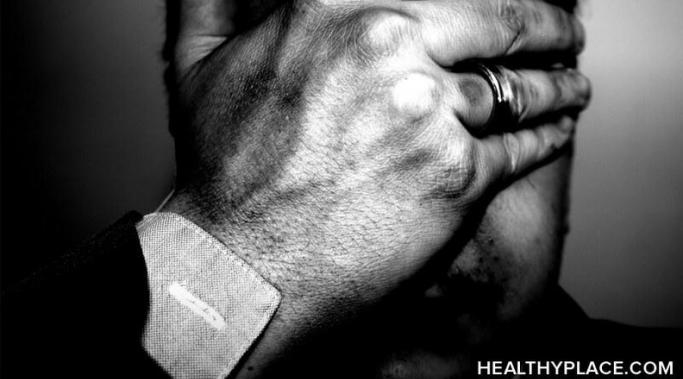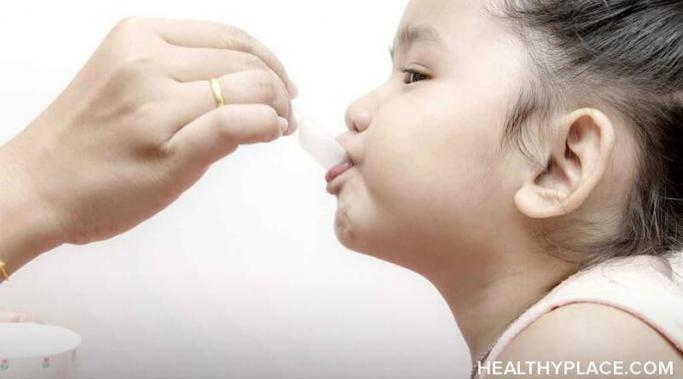Blogs
I'm a few days late with this post, but with good reason: we've been trying to orchestrate Ben's hospital discharge plans. Yes - after this six-week relapse, he is finally back with us (as of yesterday), in so many ways.
If you've been following this schizophrenia relapse, you know that this had been Ben's first relapse in over six years, and that it was precipitated by a too-quick-and-unguided move from a group home to independent living. Once he went off his meds this time, there was the danger he might not agree to take them again - and that, if he did, they might not work again.
Yet, here we are. I could cry from relief and happiness. For today, we have Ben back.
During the time I was trying to save my marriage, I made quite a few mistakes. One of them was naming the type of verbal abuse he used as he said the words.
After educating myself with many books (mostly by Patricia Evans), I made a list of the abusive techniques he has at his disposal. I learned them (hint: great idea) and posted them on the fridge (hint: terrible idea). Then, when he'd pull one of those tricks out of his hat, I named it, told him that I would talk to him when he was NOT trying to control me, and then turn on my dainty heels to leave the room.
I dropped Bob off this morning to spend the next week with his father. On the way, we hit the pharmacy to pick up his medication refills. I handed him one of his pills, as we'd been out when he took his morning doses. "It's chewable," I said, "so you can take it without water."
When we reached his father's house, I got out of the car, gave him a long hug goodbye, and got back in the car. As he and his father drove away, I noticed, in the passenger seat, the pill I'd handed him twenty minutes earlier.
Amanda_HP
Sharing your mental health with the world can backfire sometimes. There are stories across the Internet where people have lost jobs, severed relationships, and been severely criticized because they admitted to having a mental illness like depression, bipolar disorder, borderline personality disorder or you name it. Of course, that's why most people use a false identity when posting on the web, so others won't know it's them.
In January the FDA had a meeting about whether electroconvulsive therapy (ECT) machines should be moved from the most dangerous category of medical devices (Class 3) to the less dangerous Class 2.
And the freak outs began.
I saw people screaming about how wrong it was and writing petitions and wanting to go to the FDA meeting to voice their opinion. I mostly ignored this issue because, well, I didn't care. I have so many important issues on my plate there just wasn't room for one more.
That is until I can across an article in Psychiatric Times by Charles H. Kellner, MD. Kellner explains why the move from Class 3 to Class 2 is important and its possible effect on patients.
What if you didn't have access to ECT anymore?
Monday, I took Bob to the water park with my sister and her daughter, who is Bob's age. The kids get along well, and my sister and I saw this as our opportunity to beach ourselves at the wave pool while they did their "kid" thing.
Later, I recounted our day to my husband. "You let them go off by themselves?" he asked, incredulous.
Hi. Thanks for joining us as we expose the biggest myths in mental illness. Today's myth: a bad childhood causes mental illness.
Recently I became very depressed for no apparent reason. My therapist and I decided I needed to be evaluated, and that's when the nightmare started.
I live in a cluster apartment, so staff called hospital security to take me to the Crisis Intervention Unit (CIU). Hospital security said no officers were available, so staff called the Indianapolis Metropolitan Police Department. The police called for a medic, but both the medic and the police refused to transport me, saying that transporting me was hospital security's job. They made me sign a form refusing transportation, and said that all the psychiatric beds in Indy were taken.
I was taken to the emergency room, evaluated, diagnosed with suicidal ideation, and sent home because there were no beds available.
A few days following the death of Amy Winehouse, I am still at a loss for words. When I read comments like “Well she had so many opportunities to recover,” it makes it even harder to explain why that bothers me. I feel a huge loss, for her family, friends, and this is a tragedy, just as it is a tragedy when this happens to anyone, from any background.
The two dissociative symptoms that, once described clearly, are the easiest for people to relate to and understand are also the ones that have earned Dissociative Identity Disorder its undeserved reputation as a bizarre aberration. Identity alteration (experiencing the self as multiple) and dissociative amnesia (gaps in memory) are the two manifestations of dissociation that are mythologized the most. But it’s not because they’re too foreign for most people to grasp. On the contrary, in their mildest forms they’re downright normal.







